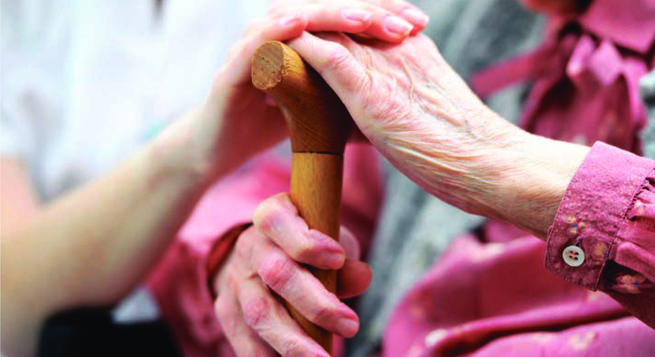Bridging the Gap

By Christine Galea - Secretary to the Council of Cana Movement
This article was publishd in the Senior Times of March 2017
In recent months, much has been said and written with respect to Pope Francis’ post-apostolic exhortation Amoris Laetitia, especially regarding persons who have divorced and remarried, but there is still a great deal of Amoris Laetitia which remains to be explored, particularly the fifth chapter, in which the Pope profoundly turns his attention to the senior citizens of our society. There is certainly a public policy issue for communities in how we treat the elderly and how we care for them, however families are not without responsibilities in this regard. No matter how much, or how well, the older members of our families are cared for by the Church, the State or by a private agency, their relatives still have responsibilities in this endeavour.
In our contemporary world in which so much importance is attributed to family life, Pope Francis speaks of a “culture of encounter”, and of family life in a broad sense which includes all family members, and not only the so-called “nuclear” family; because the family, with its deeply social character, is a wide network of many different relationships. Within this social dimension, the Pope particularly emphasizes the specific role of the relationship between the youth and the elderly. This represents a challenge in that the Pope is asking us to combat today’s “throw-away culture” and not to conform to a mentality of impatience, and much less of indifference and contempt towards old age. He states that “we must reawaken the collective sense of gratitude, of appreciation, of hospitality, which makes the elderly feel like a living part of the community” (Amoris Laetitia, 191). He appeals for “the overflowing joy of a new embrace between young and old” (191).
These six qualities, impatience, indifference, and contempt, as opposed to gratitude, appreciation and hospitality, are not a matter of simply “feeling” something towards an older person. The latter three are virtues which must be learnt and practised and they involve an active choice on one’s part: one can choose to be thankful, can express appreciation and can display a welcoming attitude, versus being uncaring or impatient, and contemptuous towards elderly relatives. Of course this involves an effort and sometimes even an interior struggle, but that does not negate the need for fostering the positive factors of a relationship.
The elderly have much to offer the younger generations. They help families to appreciate the continuity of the generations by the charism of bridging the gap, by passing down important values and traditions. Their stories raise awareness in children that human history has long been in the making and that they form part of a bigger picture, teaching them to realize that they need to respect all that came before them. Their wisdom, kind words and affection can serve as a balm to youth who could possibly feel misunderstood and neglected by their parents who may be busy or overburdened with career and other commitments. Keeping strong ties with our elderly relatives ensures that our connection with the past is not broken and this encourages the building of stable relationships.
To quote Pope Francis, “Attention to the elderly makes the difference in a society…… such a society will move forward if it respects the wisdom of the elderly” (192). So, in an age in which we worship youth, and age is seen to be a threat to our self-image as a society, let us encourage our elderly to bridge the gap, by surrounding them with respect and affection and considering them to be a blessing. This is where the future of the modern family lies.
comments powered byDisqus

